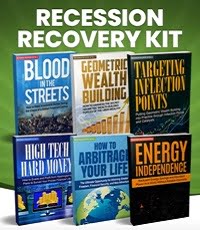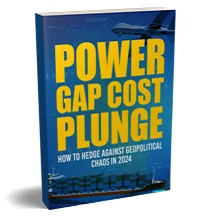The Ides of March
“Beware the Ides of March,” warned a soothsayer on March 15, 44 B.C. “Well, the Ides of March have come,” joked Julius Caesar. “Ay, they have come,” replied the soothsayer, “but they are not gone.”
Before the day was over Julius Caesar was stabbed to death in the Roman Senate, marking an inflection point in Roman history. “The Ides changed everything,” said Cicero.
Natural disasters, melting nuclear fuel rods, wars, riots, revolutions, Charlie Sheen…we’ve seen a rapid series of inflection points this year and it’s only the Ides of March. What else could possibly go wrong?
A bond market collapse? A stock market crash? Perhaps both. We’ll begin with some foreboding indications that are testing the nerves of bond investors…
An Unappetizing Mess
Inflation is the enemy of bond investors. Once the inflation rate rises above a bond investors established yield, the investment generates a negative real return. In other words, the income generated does not keep up with rising prices.
Central bankers the world over have been playing a game of chicken with inflation. To boost their economies they’ve artificially suppressed interest rates, which, in effect, lowers the price of money. This encourages borrowing and spending. It also increases the money supply.
“Among central bankers, there is agreement on the recipe for restoring stable, steady global growth,” explained BusinessWeek on Saturday.
“Step 1: Emerging-market central banks raise rates enough to put a lid on inflation. That supposedly prevents price pressures from spreading to the U.S. and gives the American economy more time to recover. Then, after interest rates in emerging markets have been set, it’s time for Step 2, with the U.S. Federal Reserve tightening rates. As with a delicate soufflé, timing really matters. If it’s off, the whole thing can collapse into an unappetizing mess.”
Here’s why…
When interest rates increase bond prices decrease. If rate increases are subtle, and effectively counterbalance inflation, then no big deal to bond investors. Their income generation is preserved and the bond price, while slightly lowered, is nothing of much concern.
But when interest rates increase too quickly or too sharply, and bond prices rapidly fall, bond investors can panic. When bond investors panic, they sell…which only exacerbates the problem. Interest rates spike up as the bond market collapses.
Inflation in emerging markets has been accelerating. Soon its effects will also hit the U.S. economy. How quickly central bankers adjust interest rates and how bond investors react could disrupt the debt market. If that happens, the economy will be disrupted too.
Still, as if that weren’t enough, the stock market could crash too…
Advice Worth Considering
Former Goldman Sachs market forecaster, Charles Nenner, told the world on FOX Business last Thursday that he’s telling his clients to get out of the market because the DOW will drop to 5000.
“We went long in 2009 in the first quarter [when] we had a price target of 1356 on the S&P 500, and we’re getting close,” said Nenner. “So I told my big clients, hedge funds, pension funds, and big firms to go almost totally out of the market.”
So, based on Nenner’s analysis, just what in the heck could trigger the DOW dropping to 5000?
“Well, I don’t want to depress you,” said Nenner, “but I should tell you that I also do war and peace cycles and it shows that were going to have a major war at the end of 2012, beginning of 2013. And I think that’s going to do it.”
Obviously, a major war could crash the stock market – if it were to occur. But what are the chances and why should we listen to Nenner?
When it comes down to it, he’s no more than a modern day soothsayer. What we mean is he’s a fraudster. But as Julius Caesar discovered, sometimes the words of a fraudster should be heeded. At the moment, like Nenner, we believe getting out of the market is advice worth considering.
Sincerely,
MN Gordon
for Economic Prism





